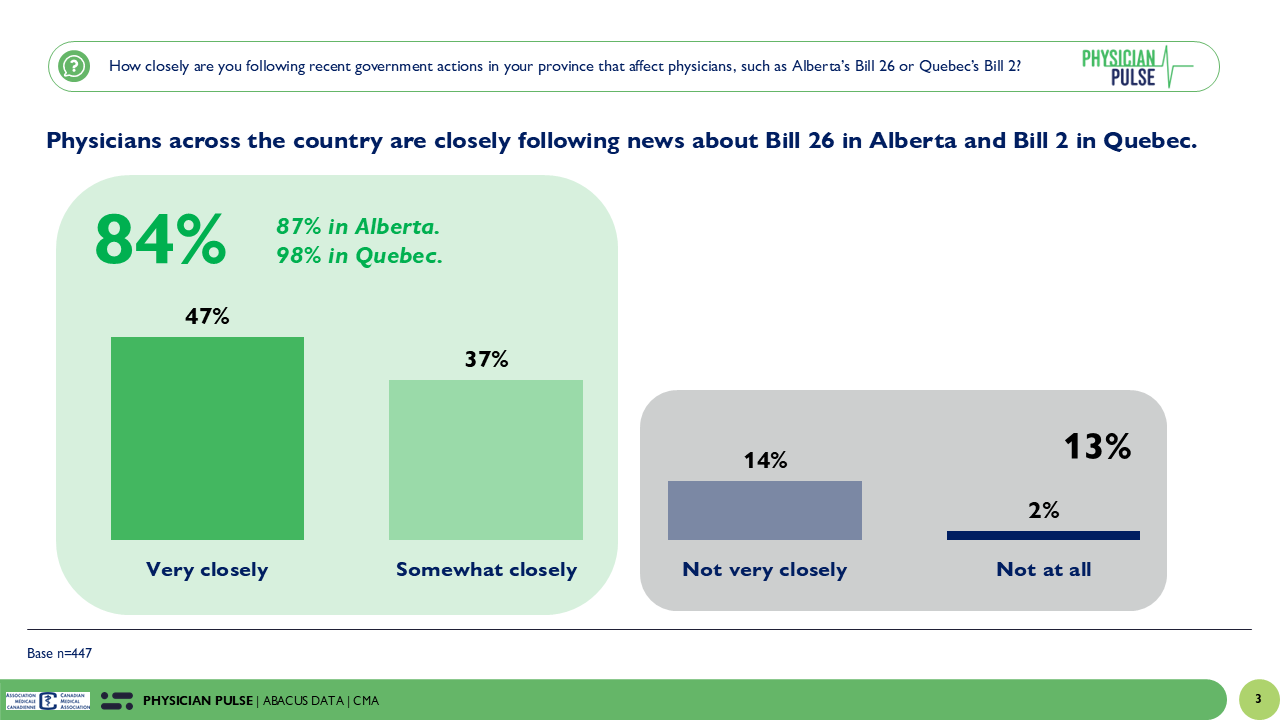Canadians Want Action on Gender Parity in Politics
September 22, 2025
New research shows Canadians overwhelmingly support equal representation in politics—but give governments and political parties failing grades on progress so far.
Canadians have long seen gender equality as a defining value of our democracy. But recent polling conducted by Abacus Data for Informed Perspectives reveals a sharp disconnect between Canadians’ commitment to parity and the lack of progress in political representation.
Canadians Expect More
Nearly all Canadians want to see more being done to achieve gender parity in politics. Many are surprised, even disappointed, to learn that Canada ranks just 71st globally in women’s representation—a decline from 59th a few years ago. Four in ten Canadians say they are surprised by Canada’s low global standing, and nearly as many say they are disappointed that more progress hasn’t been made.
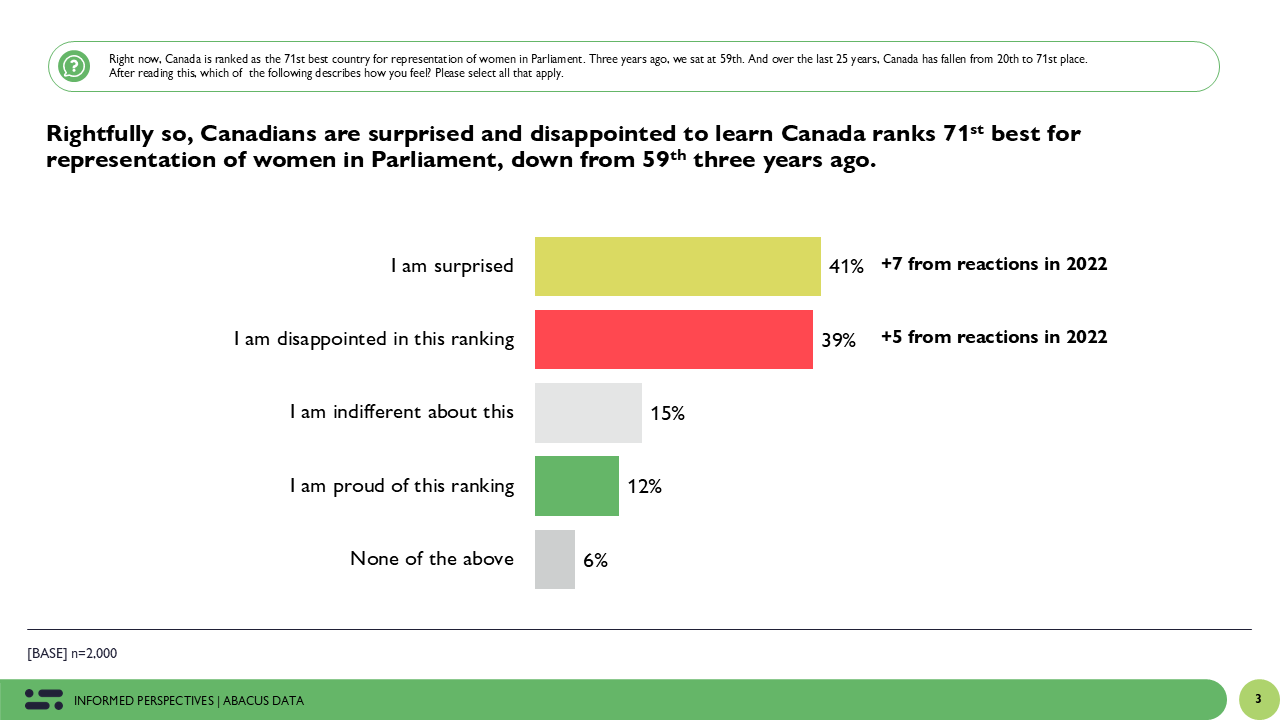
The data also show a broader frustration: 30% of Canadians describe Canadian society as inequitable—an opinion ten points higher among women than men.
A Core Canadian Value
Gender parity is not a fringe concern. It is a core belief for Canadians across political affiliations and demographics. Eighty-six percent say equal representation of men and women in politics is important at all levels of government, a finding consistent since 2022. Importantly, support cuts across lines of gender and party preference.

Canadians also believe that parity brings concrete benefits:
- 84% say it leads to policies that better reflect the realities and needs of the broader population.
- 81% say it increases respect in political dialogue.
- 78% say it boosts government productivity.
- 78% say it fosters more cross-partisan collaboration.
For most Canadians, parity is about building a democracy that works better for everyone.
Canadians want Institutional Involvement
Yet expectations remain clear: around seven in ten Canadians, and nearly eight in ten when it comes to the federal government, want each of these institutions and groups to play a big role in ensuring women have an equal voice in politics.
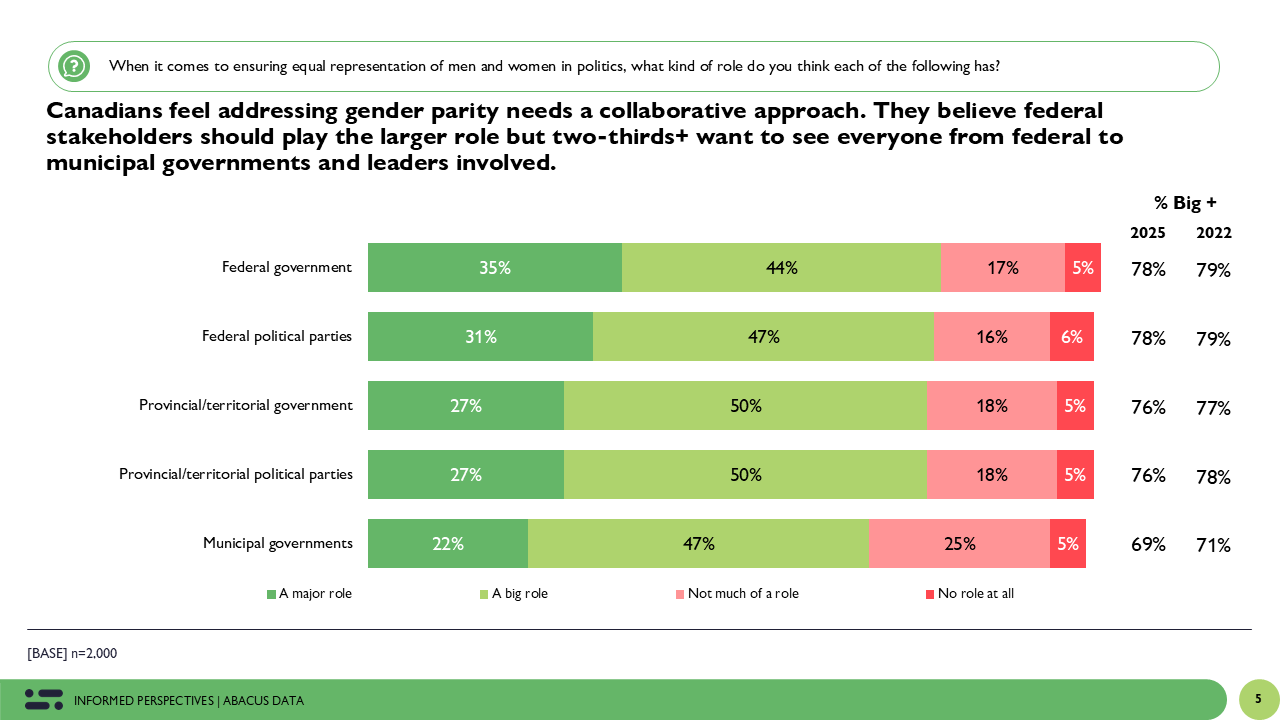
Pathways Forward
Canadians strongly support learning from international examples and adopting proven strategies here at home. Enforcing greater civility and respect in debates (73%) and changing conditions of work for elected officials (69%) top the list of reforms Canadians see as both effective and necessary.
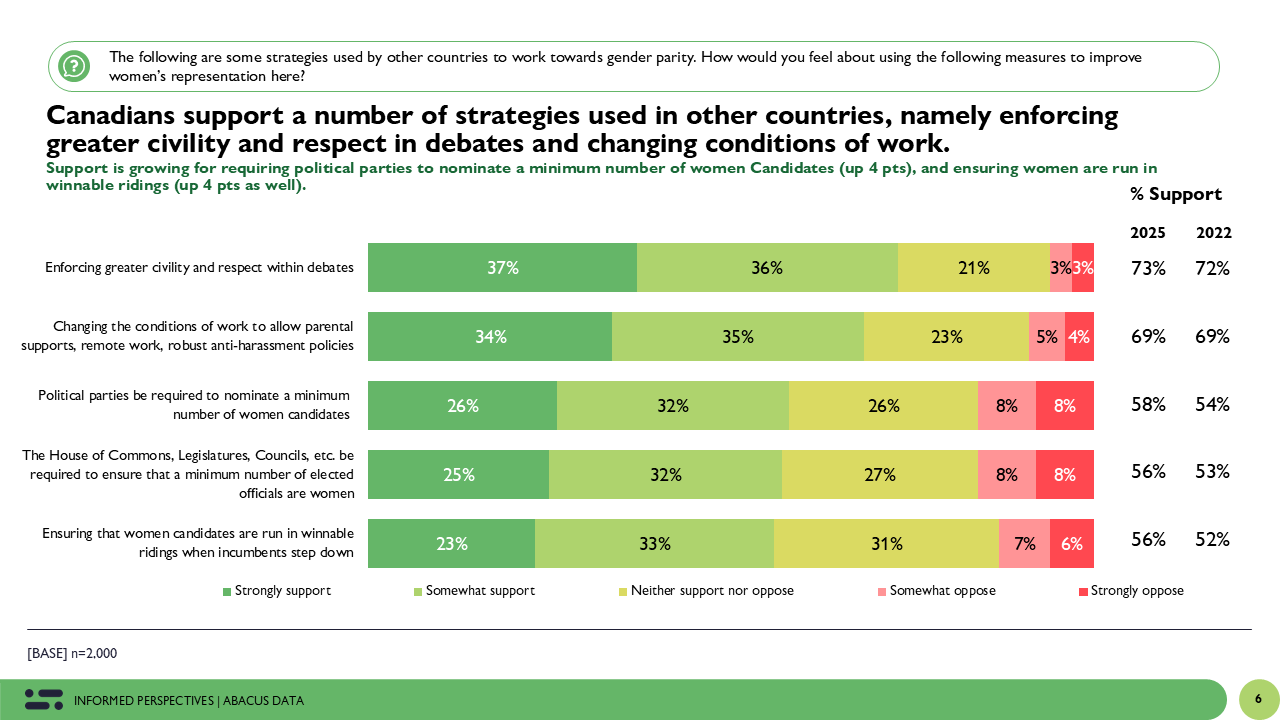
Support is also growing for more ambitious measures. A majority now favour requiring parties to nominate a minimum number of women candidates (58%, up four points since last measured) and to run women in winnable ridings (56%, up four points). There is also majority support for legislatures, including the House of Commons, to ensure a minimum number of women are elected representatives.
Across the board, more than seven in ten Canadians believe these measures would help Canada achieve parity—including men and women, and supporters of all major federal parties.
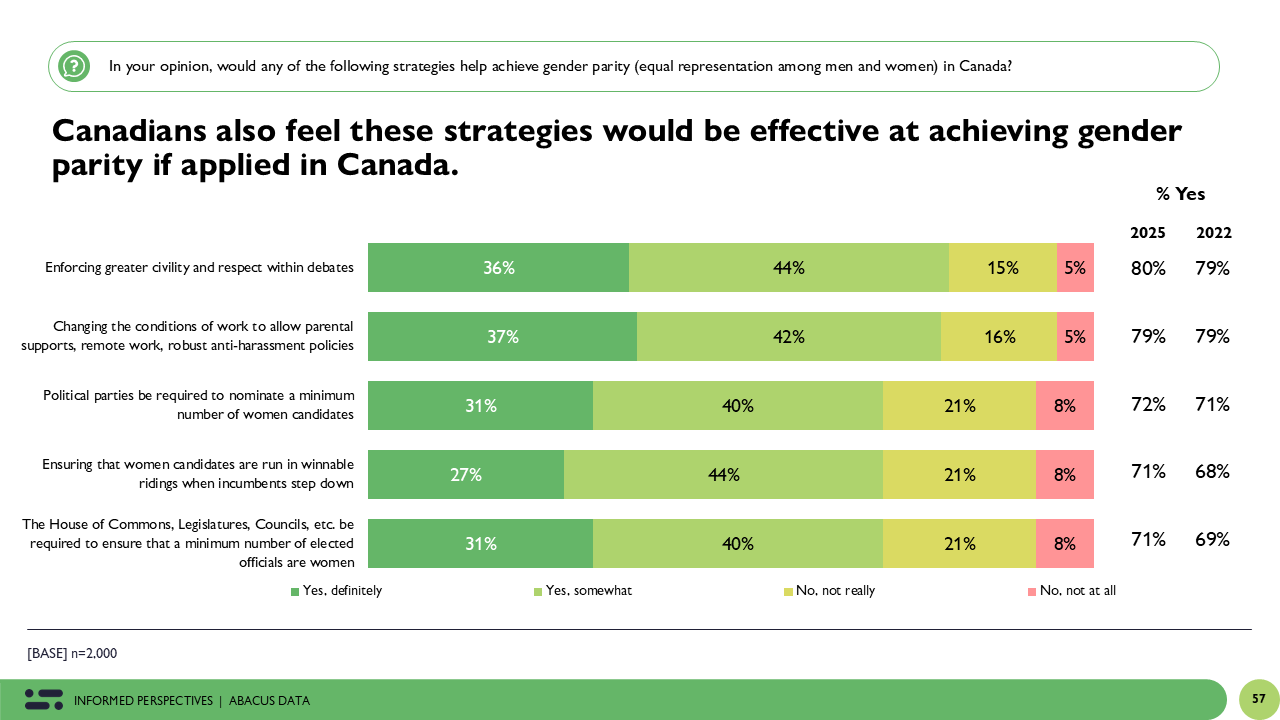
Upshot
Canadians are clear: gender parity is fundamental to the health of our democracy. They believe it strengthens our economy, improves decision-making, and reflects the values of equality we aspire to as a country. But they are equally clear that governments and political parties are not doing enough.
With Canada sliding in international rankings, the choice is stark: act now with proven strategies to ensure women are equal partners in shaping our future, or risk further erosion of Canada’s democratic credibility.
Methodology
The survey was conducted with 2,000 adult Canadians over the age of 18 from July 31 to August 5, 2025. A random sample of panelists were invited to complete the survey from a set of partner panels based on the Lucid exchange platform. These partners are typically double opt-in survey panels, blended to manage out potential skews in the data from a single source.
The margin of error for a comparable probability-based random sample of the same size is +/- 2.19%, 19 times out of 20.
The data were weighted according to census data to ensure that the sample matched Canada’s population according to age, gender, educational attainment, and region. Totals may not add up to 100 due to rounding.
Abacus Data follows the CRIC Public Opinion Research Standards and Disclosure Requirements that can be found here: https://canadianresearchinsightscouncil.ca/standards/
This poll was paid for by Informed Perspectives.

ABOUT ABACUS DATA
We are Canada’s most sought-after, influential, and impactful polling and market research firm. We are hired by many of North America’s most respected and influential brands and organizations.
We use the latest technology, sound science, and deep experience to generate top-flight research-based advice to our clients. We offer global research capacity with a strong focus on customer service, attention to detail, and exceptional value.
And we are growing throughout all parts of Canada and the United States and have capacity for new clients who want high quality research insights with enlightened hospitality.
Our record speaks for itself: we were one of the most accurate pollsters conducting research during the 2025 Canadian election following up on our outstanding record in the 2021, 2019, 2015, and 2011 federal elections.
Contact us with any questions.
Find out more about how we can help your organization by downloading our corporate profile and service offering.


